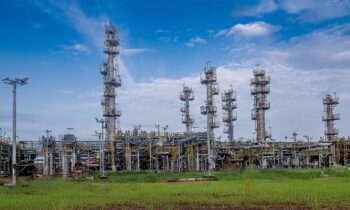 The $3 billion to be spent on phase one of the Presidential Power Initiative (PPI) which is being undertaken by Siemens Energy will basically be focused on essential quick-win measures to increase the system’s operational capacity to 7000MW and to significantly reduce Aggregate Technical, Commercial and Collection (ATC&C) losses.
The $3 billion to be spent on phase one of the Presidential Power Initiative (PPI) which is being undertaken by Siemens Energy will basically be focused on essential quick-win measures to increase the system’s operational capacity to 7000MW and to significantly reduce Aggregate Technical, Commercial and Collection (ATC&C) losses.
This is the difference between the amount of electricity received by a distribution company from the transmission company and the amount of electricity
The Special Adviser to President Muhammadu Buhari on Infrastructure, Ahmad Zakari,had said the Federal Government was expected to achieve an increase in power generation and expansion of 7,000 Megawatts (MW) transmission from current 4,900 MW, from a budget plan of $3 billion on the energy sector in the next 24 months.
But in an interview with Business Standards, the managing director of Siemens Energy, Seun Suleiman, he said: “Siemens is very ready for the task ahead; however, when the government is undertaking big projects like this, it needs to set out with the right modalities which is why the government decided to set up a brand new company called the FGN Power Company”.
He said the new company has actually put its structures together and have also hit the ground running with initial discussion which is why the parties are now at the stage of awarding a letter to that effect.
According to him, it is not a negative thing that the programme is at the stage in which it is now, because he understands setting up a new company to transact business with Siemens takes time.
The project, which is directly under the Office of the President, is controlled and administered from the Office of the Chief of Staff to the President, on behalf of the president.
After the signing that was achieved on Feburary 18, Siemens Energy is now focusing on the execution of the project, to see what it can do more by completing the pre-engineering on time,and thereafter move into other phases of the project.
Already efforts are being made at finalising the letter of credit and also working on the advance payment an industry source has confirmed. Once the company gets those things right, it means the order can be recorded its books.
According to sources, the German ECA and the federal government funding is also currently being tidied up and work is currently going on, meaning that the arrangement is still standing.
Siemens Energy said the reason it is expecting the letter of credit is because the whole exercise is still at the pre-engineering phase. In this phase, there are five different proposals, some of which are directly with its parent company abroad.
There has to be a letter of credit between the parent company and the FGN power company for further transaction to occur. But as far as Siemens Energy Nigeria is concerned, this may not be necessary.
The company said it has what it takes to hit the ground running, but needs to make sure everything is fully detailed as well.
The government also is considering an end to the current electricity subsidy by December 2021.
The spending is expected to increase the power being wheeled by the Transmission Company of Nigeria (TCN) from the current 4,900MW to, at least, 7,000MW.
Speaking during a webinar hosted by the Abuja Chamber of Commerce and Industry (ACCI), Special Adviser to President Muhammadu Buhari on Infrastructure, Ahmad Zakari, said that though government secured $500 million loans from the World Bank earlier this year, it is expecting another facility from the African Development Bank (AfDB).
He added that the gestures were a demonstration of confidence in the reforms being made in the sector.
The collection efficiency of the Distribution Companies (Discos) has significantly improved since the CBN started warehousing the funds. Zakari explained, adding, “with this enhanced metering on the service-based tariff, we can see the Nigerian electricity supply industry generating over N100 billion in the near to mid-term. This is very impressive.”
“The hypothesis that we have is that if you enhance payment discipline through metering the population, revenue will go up. We have proven that,” he stated.
Zakari said that the current administration was focused on moving from the traditional way of funding subsidies or using the liquidity in the sector to fund consumption. Rather, he said, the subsidy budget would go into infrastructure that would ultimately lead to growth.





